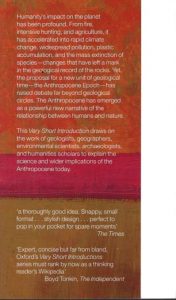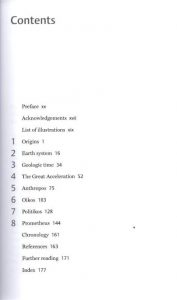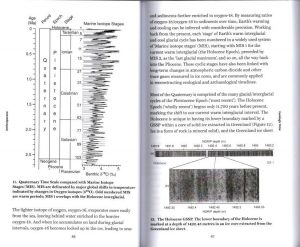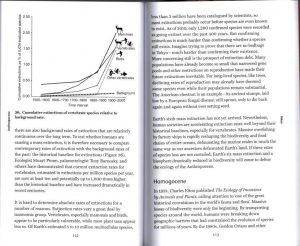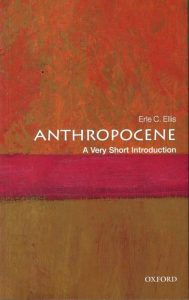 Title: ANTHROPOCENE - A Very Short Introduction
Title: ANTHROPOCENE - A Very Short IntroductionPublished by: Oxford University Press, Oxford
Release Date: 2018
Contributors: Erle C. ELLIS
Genre: theory / elmélet
Pages: 188
ISBN13: 978-0-19-879298-7
3900 HUF - temporarily unavailable
The proposal that the impact of humanity on the planet has left a distinct footprint, even on the scale of geological time, has recently gained much ground. Global climate change, shifting global cycles of the weather, widespread pollution, radioactive fallout, plastic accumulation, species invasions, the mass extinction of species - these are just some of the many indicators that we will leave a lasting record in rock, the scientific basis for recognizing new time intervals in Earth's history. The "Anthropocene" as the proposed new epoch has been named, is regularly in the news.
This Very Short Introduction explains the science behind the Anthropocene and the many proposals about when to mark its beginning: The nuclear tests of the 1950s? The beginnings of agriculture? The origins of humans as a species? Erle Ellis considers the many ways that the Anthropocene's "evolving paradigm" is reshaping the sciences, stimulating the humanities, and foregrounding the politics of life on a planet transformed by humans. The Anthropocene remains a work in progress. Is this the story of an unprecedented planetary disaster? Or of newfound wisdom and redemption? Ellis offers an insightful discussion of our role in shaping the planet, and how this will influence our future on many fronts.

